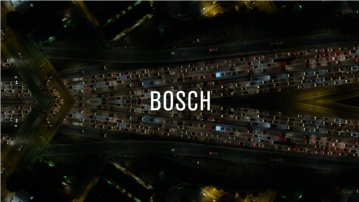Before she
was an Avenger, Natasha Romanoff (Scarlett Johansson) was a Black Widow, an
assassin trained and controlled by the Red Room overseen by Soviet Gen. Dreykov
(Ray Winstone). Before that, however, she and fellow Black Widow child recruit
Yelena Belova (Florence Pugh) lived in Ohio posing as the children of Soviet
agents Alexei Shostakov (David Harbour) and Melina Vostokoff (Rachel Weisz), a
super-soldier and a senior Black Widow, respectively. In 2016, while on the run
from American government official Thaddeus Ross (William Hurt), Natasha is
contacted by Yelena, who has recently broken free of the Red Room. Mutually
distrustful, the former sisters must work together to confront their past.
If nothing
else, Black Widow is a victim of circumstance. Though envisioned as a
stand-alone “sidequel” to give the title character a proper send-off following
her death in Avengers: Endgame, multiple delays pushed Black Widow
into the unenviable position of being the first MCU film release in more than a
year at a time when Marvel’s Disney Plus series were making the big screen seem
irrelevant. Ouch. Taking timing out of the equation, however, and Black Widow
is a solidly exciting action flick with deft humor, a likable cast, and several
glaring flaws.
Helmed by
Cate Shortland and written by WandaVision creator Jac Schaeffer, among others, Black
Widow manages a mishmash of tones. It spares us the gratuitousness of a
firsthand look at Red Room training while still conveying the gravity of its
trauma, which both Johansson and Pugh do quite convincingly. At the same time,
Natasha and Yelena’s competitive banter, which switches between English and
Russian, is a source of humanization for the hardened assassins as well as
humor. Speaking of the latter, Alexei as a boastful Soviet-equivalent Captain
America knockoff gone to seed, is set up as the film’s comic relief, but his
arc is still tinged with pathos.
The only
substantial characters lacking in complexity are Dreykov and his top enforcer,
the Taskmaster. In the case of the former, Winstone plays him as a
distinctively loathsome bastard, so this isn’t exactly a liability. Taskmaster,
while a formidable combatant, is largely a waste of the character. The comic
book counterpart is a trash-talking mercenary rival to Deadpool with a
photographic memory and the ability to copy an opponent’s fighting style. The
film version retains the latter trait though presents a different character
under the armor as a largely mute minion, devoid of everything else that made Taskmaster
interesting.
If Black
Widow’s tone is in flux, so too is the quality of its plentiful action
sequences. When it sticks to hand-to-hand combat and gunplay, it’s
well-choreographed. Though Yelena mocks Natasha’s combat poses, the latter is
still as competent a fighter as ever. Once the film becomes airborne, however,
it kicks suspension of disbelief out the window and resorts to excesses that would
make Michael Bay blush.
In keeping
with Marvel traditions, Black Widow’s post-credits scene hints at what
is to come. That moment aside, this is one of the MCU’s least impactful entries
though, all things considered, hardly one of its worst.



_poster.jpg)
